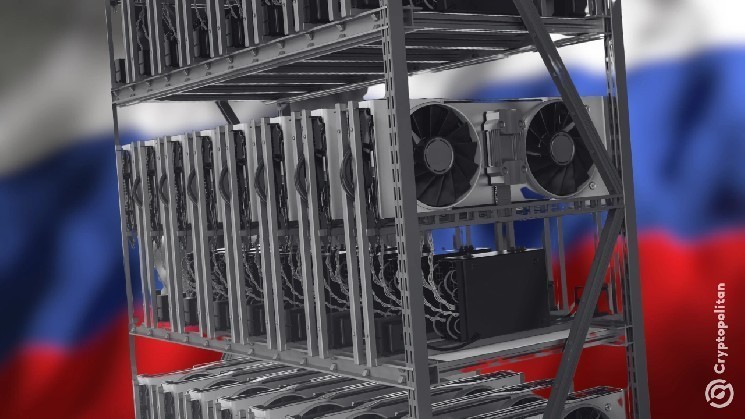Cryptocurrency miners in two Russian regions could soon be permanently banned from operating their businesses, according to the Moscow federal government.
Next, Siberian territory will be added to the long list of areas where mining is already banned on suspicion of causing power shortages.
Moscow considers ban on mining in Buryatia and Zabaikal
Representatives from the Ministry of Energy announced during a meeting of the Federation Council, the upper house of Russia’s parliament, that Bitcoin mining could be banned for the entire year in Russia’s Republic of Buryatia and Zabaikalsky Krai (Zabaikal Oblast).
Current regulations are seasonal and only come into effect during the cold autumn and winter months when energy consumption peaks, said Olga Artyunova, deputy director of the ministry’s Electricity Industry Development Authority.
At the same time, in terms of power generation and distribution, the two administrative units, together with the neighboring Irkutsk Oblast, constitute one territory, the southern part of which is completely restricted from mining until the spring of 2031.
Department of Energy officials spoke at a roundtable discussion on the issue. Quoting Senat Inform, an online publication covering the activities of the Legislative Yuan, Artyunova said:
“We are monitoring the situation on the ground. If necessary, we will react quickly and impose a year-long ban on mining, similar to the Irkutsk region.”
Russia legalized mining in 2024 to take advantage of its competitive advantage over other mining regions in terms of its rich energy resources and cool climate.
Both legal entities and individual entrepreneurs are free to participate in the activity, as long as they register, including their hardware, with the Federal Tax Service (FNS) and pay taxes to the state.
The mining boom and the concentration of mining companies in parts of the country, which offered low and often subsidized electricity rates, led to power shortages and frequent power grid breakdowns.
As a result, local governments in about a dozen regions of Russia, with the approval of the executive branch at the federal level, have imposed initially temporary, and in some cases eventually permanent, mining restriction measures.
In July, Russia’s Energy Minister Sergei Tsibilev proposed adopting legal reforms that would allow other entities to use some of the power generation capacity currently occupied by mining companies.
That same month, his department was tasked with preparing regulations that would classify crypto farms as nonessential consumers, meaning they could be remotely disconnected from the power grid the moment the grid runs out.
Not all Russian officials think miners are a nuisance
Measures to curb power consumption in mining primarily affect legally regulated operators, who complain that sudden changes in local regulations have forced them to move equipment across the vast country.
According to Anton Gorelkin, first deputy chairman of the Committee on Information Policy, Information Technology and Telecommunications of the Duma of the Russian Parliament, cryptocurrency miners have a bad reputation in Russian society.
Speaking at a forum dedicated to digital law, he was quoted by business news portal RBC earlier this week as elaborating:
“Despite the great strides made by legalization, the image of miners in society is very negative. And the task lies with the miners themselves to prove that they are necessary to the Russian economy.”
Meanwhile, the head of the Energy Committee of the State Council, an advisory body to the Russian president, pointed out that cryptocurrency mining makes sense for Russian regions rich in energy resources that are too remote to be transferred or unprofitable to transport.
Quoted by TASS on Tuesday, Aysen Nikolayev elaborated:
“Mining and power generation for computing systems is particularly relevant for remote areas with local energy resources but no export potential.”
Citing the example of Yakutia in Russia’s far east, where he is acting governor, Nikolaev said coal and gas mined there can be used to power energy-intensive computing in mining farms and data centers, thereby helping to develop the local economy.


